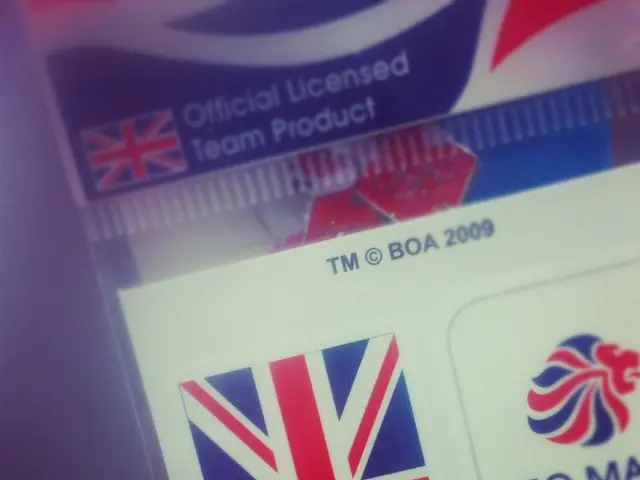Managing customers in the healthcare industry: What strategies address obstacles effectively?
In the burgeoning realm of medical engineering, customer relationship management (CRM) has emerged as a crucial factor for success in the competitive biotechnology sector. The field's complexity stems from its direct impact on human health, reliance on advanced technologies, and stringent regulatory frameworks. CRM systems, serving as strategic tools, are employed in this sector to enhance communication, boost sales, and foster long-term customer partnerships. However, implementing these systems effectively in sensitive fields like biotechnology poses unique challenges.
CRM platforms are technological tools designed to manage a company's interactions with customers, from initial engagement to follow-ups and data analysis to improve services. In the biotechnology sector, the importance of CRM extends beyond increasing sales, as it also ensures compliance with medical regulations, improves service quality, and enhances brand reputation. Here, customer management transcends marketing and assumes an ethical role aimed at protecting both patients and institutions.
For instance, CRM systems help track customer requests for medical devices, manage warranties, and even remind technical teams about routine maintenance schedules. This organization reduces human error and boosts customer trust, particularly in the context of diagnostic or therapeutic devices that directly impact patients' lives. In this sense, effective CRM becomes a social responsibility as much as a commercial one.
Biopharmaceutical sales processes are intricate, encompassing multiple stakeholders such as doctors, buyers, maintenance teams, and regulatory bodies. The importance of a CRM system in streamlining communication among these parties, without losing critical information, is evident. Successful CRM hinges on understanding the role of each party and effectively meeting their needs. Additionally, medical devices necessitate specialized technical support and may require prompt interventions in emergency cases. An enhanced CRM system facilitates the classification of complaints by priority and directs them to the appropriate teams, ensuring a swift response to customer requests. In this context, customer management translates to saving lives before making profits.
Companies operating in the biopharmaceutical sector face distinct challenges when implementing CRM systems. One of the primary hurdles is the strict adherence to medical regulations such as GDPR and FDA drug administration, which necessitate companies to adapt their CRM systems to comply with these requirements, avoiding legal penalties and safeguarding patient and institutional data privacy. The sector's complex sales cycle, prolonged by the need for multiple evaluations, administrative approvals, and clinical trials, demands the customization of precise sales paths within the system, with continuous updates to customers on process progress.
To maximize the benefits of a CRM system, biotechnology companies should devise well-planned strategies. Customizing the system to each company's unique medical needs is the first step. Off-the-shelf CRM solutions may not suffice, and companies might need to add custom features such as storing data on sold devices, integrating with medical databases, or incorporating international quality certifications like ISO 13485 into customer files. This customized customer relationship management ensures adaptability to the medical sector's unique requirements.
Teams must be trained in both technical and communication aspects. Sales staff should possess a background in medical engineering basics, along with proficiency in CRM system usage, to ensure professional interactions with clients, especially when explaining complex device specifications. Successful customer management rests on a balance between technical and human knowledge. Predictive analytics, through analyzing past sales data, can predict future customer needs and provide proactive offers. For example, if a hospital purchases an MRI machine, they might require its upgrade or comprehensive maintenance after 5 years. Intelligent customer relationship management shifts from reactive to proactive in this scenario.
Technology has become integral in enhancing the customer management experience, especially in the medical field. Advanced CRM systems offer a range of tools that revolutionize this area, including AI that analyzes customer data and offers innovative solutions, integration with smart devices for monitoring and sending maintenance alerts, interactive reports for tracking performance, and augmented reality that provides detailed medical device demonstrations remotely.
These technological tools contribute to creating a smarter, more efficient healthcare customer experience, expediting maintenance processes, minimizing the likelihood of malfunctions, providing accurate information for decision-making, and facilitating device purchases. Moreover, these tools amplify customer satisfaction by offering a smooth and effective experience.
The future of customer relationship management is poised to evolve significantly, moving towards greater personalization. Technologies like the Internet of Things are expected to play a crucial role in direct communication, exploring medical devices, and sending automatic maintenance alerts, making management more proactive. Virtual reality will also simplify training customers to use complex devices, enhancing their brand experience.
Customer relationship management through CRM systems is a strategic necessity for companies operating in the biotech field. The goal is not merely to increase sales but to build trusting relationships based on a deep understanding of customer needs and providing innovative solutions. With technological advancements, these systems have become more intelligent and capable of helping businesses stand out in a market where there's no room for coincidence.
Success in this field requires more than just high-quality products. It depends on how you communicate with customers, how quickly you respond to their issues, and your ability to convert data into smart decisions. Customer relationship management is not a choice but an investment in brand reputation and customer satisfaction. With the right tools and strategies, every customer interaction can be transformed into an opportunity to foster loyalty and drive innovation in a field that touches millions of lives.
- In the biotechnology sector, CRM platforms not only enhance sales but also ensure compliance with medical regulations, improve service quality, and protect both patients and institutions, making customer management an ethical responsibility.
- The success of a CRM system in the biopharmaceutical sector hinges on understanding the role of each stakeholder and customizing the system to meet their unique needs, which includes adhering to stringent medical regulations, streamlining communication, and facilitating swift responses to customer requests, such as emergency cases.
- To truly excel in customer relationship management in the biotech field, companies should invest in intelligent CRM systems that offer AI analysis, smart device integration, interactive reports, augmented reality demonstrations, and predictive analytics, all of which aim to create a smarter, more efficient healthcare customer experience, ultimately fostering loyalty and driving innovation.






